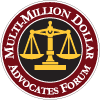White Collar Crimes
The Consequences Of White-Collar Crimes In Pennsylvania
Even though they cause no physical harm, white-collar crimes are subjected to severe penalties including sizeable fines and imprisonment. A term used for a variety of crimes, the white-collar crime involves the use of illegal or unlawful means to make money. Performing crimes such as embezzlement and insurance fraud, white-collar criminals use deception or trickery to nab money or property. Generally, federal laws are used to punish white-collar criminals, although in some cases, Pennsylvania laws also apply.
The term ‘white-collar crime’ is used for a number of non-violent crimes including fraud, money laundering, and tax evasion. Inherently technical in nature, white-collar crimes involve the manipulation of information and can be committed by both individuals and corporations. Of all the white-collar crimes mentioned above, fraud and embezzlement are the most common so discussing their types and the penalties they are subjected to is important.
Fraud
The use of deceit for financial gain is referred to as fraud. There are many different types of fraud. Following are the most common ones:
Securities fraud
Misinformation related to investment decisions is what this fraud involves. An example of securities fraud is insider trading.
Insurance fraud
An attempt to cash an insurance policy by providing false or misleading information is known as insurance fraud.
Penalties for fraud
Punishments for the aforementioned crimes vary but generally these crimes lead to sizeable fines and imprisonment. In Pennsylvania, the penalty for a first-time offense is up to $5,000 while a second offense can result in a fine of up to $10,000.
Embezzlement
Embezzlement is the use of coercive or fraudulent ways to acquire money from someone you owe some type of duty to. Pennsylvania laws define Embezzlement as a form of theft. Common examples of embezzlement include an employee stealing money from the employer by transferring company funds into his or her personal account and lawyers or investment advisors inappropriately using client funds.
Penalties for embezzlement
The value of the funds/property stolen determines the severity of penalty for embezzlement. This type of felony is categorized into three levels including first-degree felony, a second-degree felony, and third-degree felony. Stolen funds/ property worth over $2000 result in a third-degree felony while a second-degree felony includes anything worth more than $100,000. Theft of over $500,000 causes a first-degree felony. The harshest punishment is given for a first-degree offense which can be up to seven years of imprisonment.
White-collar crimes fall under federal jurisdiction and their investigation is performed by the following federal agencies:
- United States Treasury
- Internal Revenue service
- Federal Bureau of Investigation
- U.S Citizenship and Immigration service
- The United States Postal Service
- Securities and Exchange Commission
You may have something to do with a white-collar crime if personnel from any of the aforementioned agencies question you. A good way to deal with the aforementioned agencies and avoid white-collar crime penalties/punishments is taking help from Pennsylvania Attorneys. In addition to helping you deal with federal agencies, Pennsylvania Attorneys can help recover any money you may have lost due to a white-collar crime.
Sources:
https://www.lawofficeofkevinmarkwrayesq.com/217785056
https://hirealawyer.findlaw.com/choosing-the-right-lawyer/white-collar-crime.html
https://en.wikipedia.org/wiki/White-collar_crime






